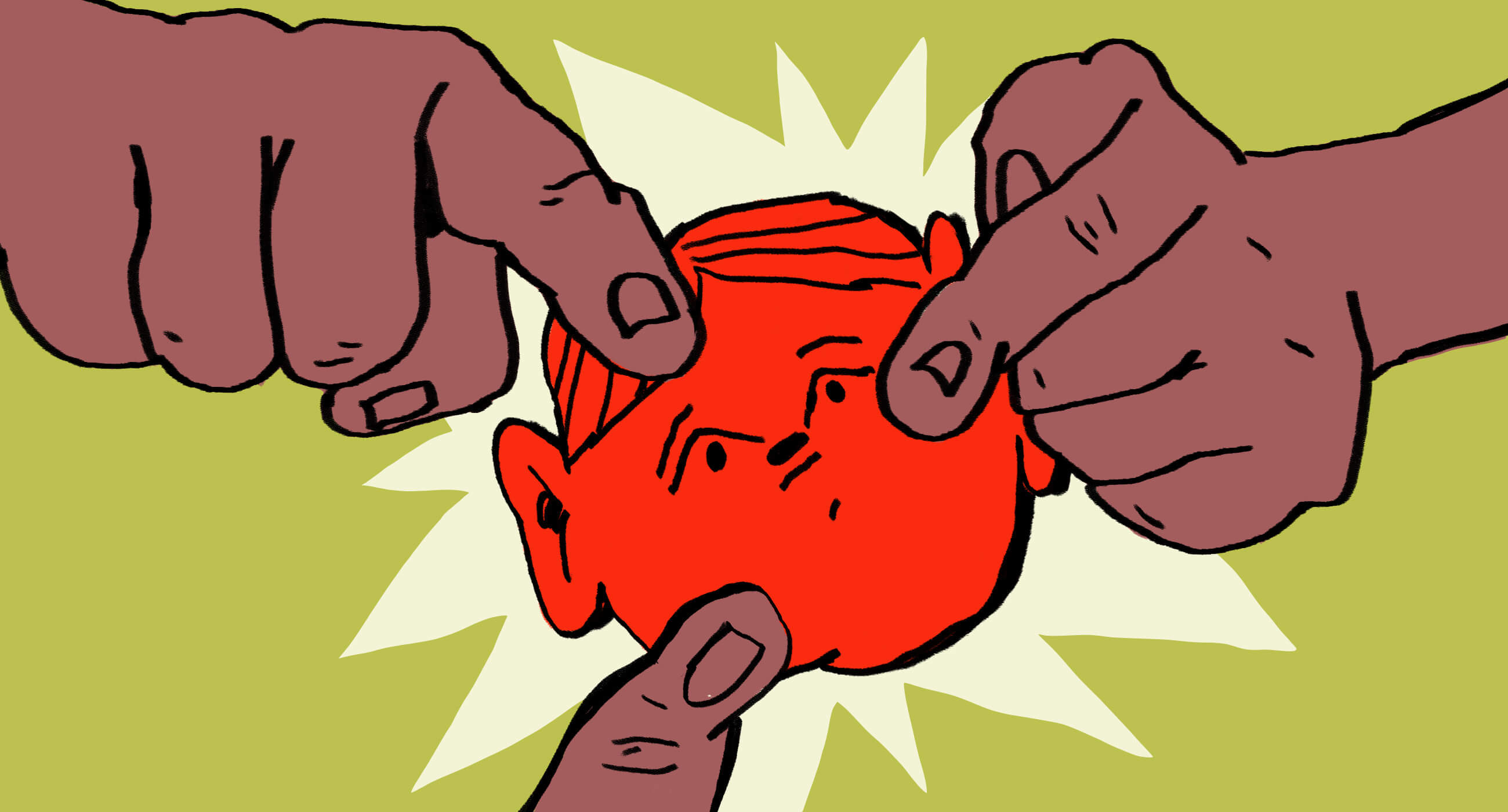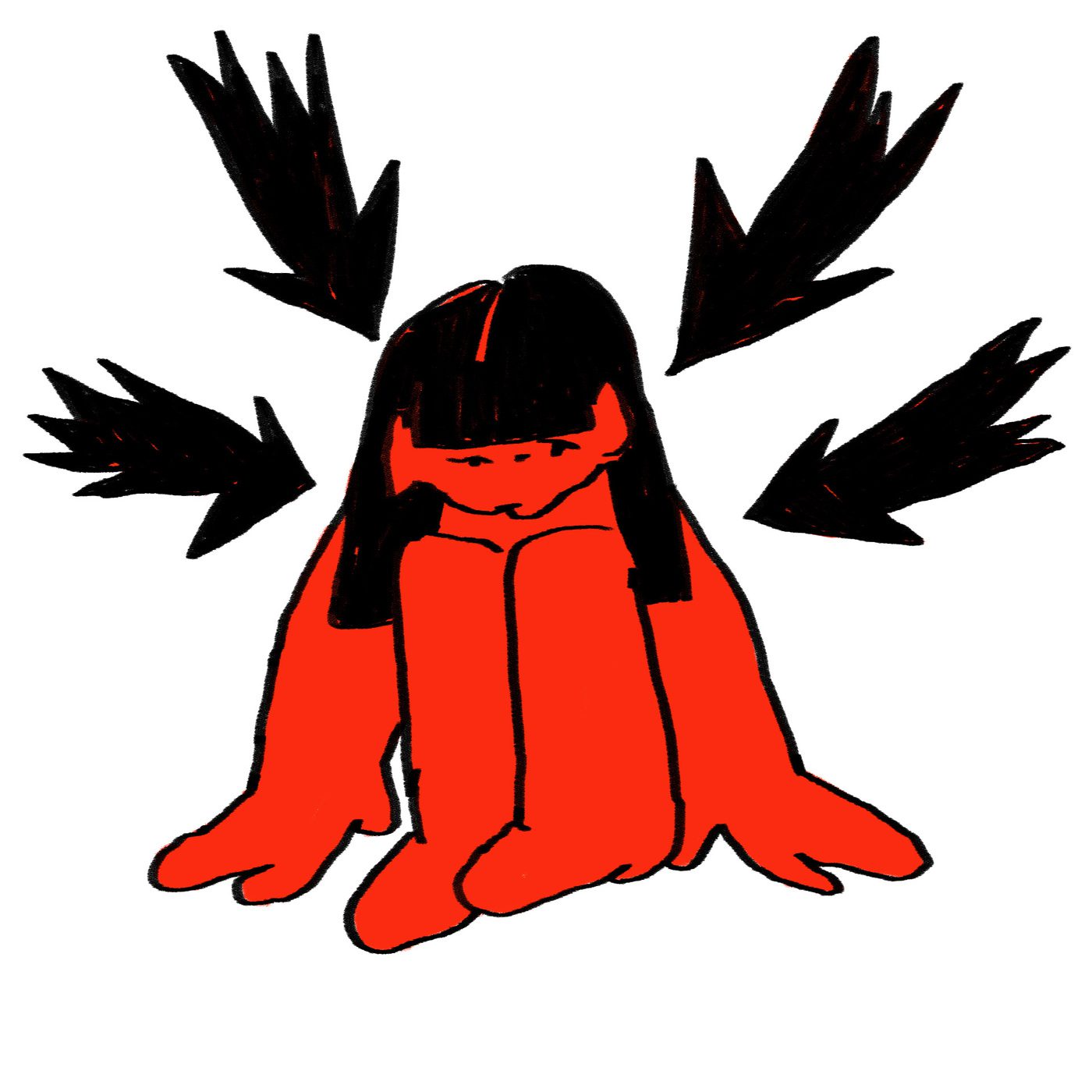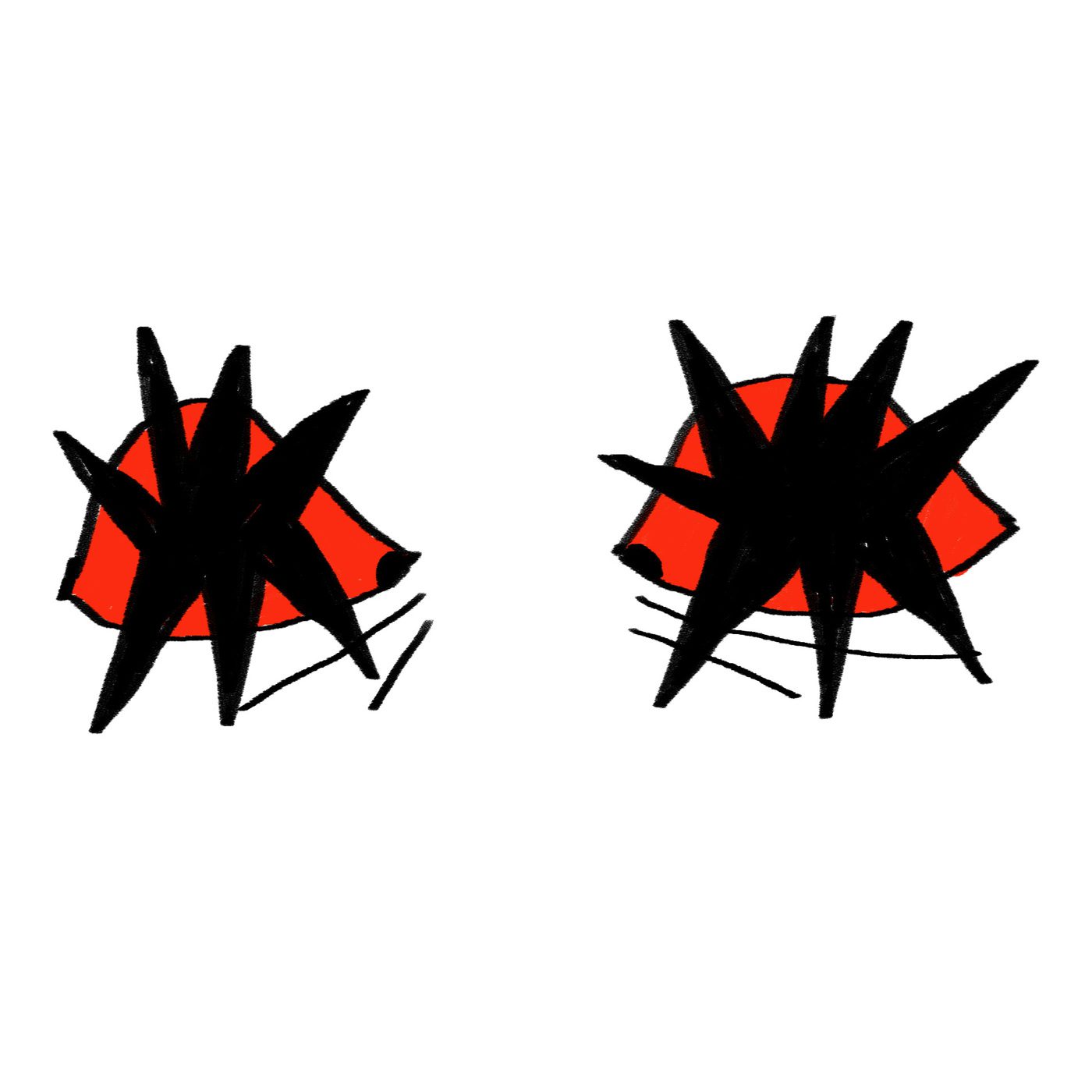Oleksandra (name changed in the child’s interests) moved to Lviv from the now-occupied Luhansk region. According to the girl, she is being bullied by her peers at her new school because of her native region and occasional use of the Russian language.
While younger children’s aggression is usually unconscious, psychologists say that teenagers seek to assert themselves, compete, and attract attention with such behavior. Bullying often becomes a way to satisfy these needs without understanding responsibility for such actions.
Since internally displaced children have seen terrible things while moving from the frontline areas, are experiencing the loss of their homes, relatives, and social circle, this makes them more vulnerable to bullying. Journalist Olena Sulikovska talked to an internally displaced family that is experiencing bullying for the second time, and a psychologist who explains the causes of bullying and ways to cope with its consequences.
What is bullying
According to the Ministry of Science and Education of Ukraine, bullying is psychological, physical, economic, and sexual violence, including through digital communication, committed against a minor or an underage person. Typical signs of bullying include:
- repetition;
- parties — offender, victim, observers (if any);
- actions or omissions of the perpetrator that resulted in mental and/or physical harm, humiliation, fear, anxiety, social isolation etc.
Examples of bullying:
- intentional deprivation of food, clothing, money, documents, etc.;
- obstruction of education, coercion to work, and other actions of economic nature;
- verbal abuse, threats, humiliation, etc.;
- humiliating looks, gestures, movements, nicknames, offensive rumors, etc.;
- slapping, kicking, pushing, etc.
The story of a family from Luhansk region
Oleksandra recalls that she was bullied in her hometown, primarily because of her informal appearance. The girl told the school administration, her parents, and even the police about the negative attitudes towards her, but the situation did not change. Only when she found herself abroad due to the full-scale war, she says, did she finally feel friendly treatment from both teachers and peers.
A few months later, in September 2022, she returned to Ukraine and settled in Lviv with her family.
“Here I was bullied because I am from Luhansk region, and sometimes I can say something in Russian. One classmate said I was from Russia. I took it as a joke because it was easier. Recently, when I wrote that I had to skip my last class because of an interview, the same classmate started saying that I hadn’t achieved anything and bragging about his donations to the Ukrainian army. A couple of my classmates constantly distort my last name,” she says.
Usually, Oleksandra takes it in stride, but sometimes she feels angry. The bullying has even led to her wanting to change her last name. “My classmates don’t even realize part of the truth when they spread gossip about me,” she adds.

Illustration: Kateryna Kruhlyk / Zaborona
She believes that the bullying will end when most of her classmates go to college after the ninth grade. In the meantime, her biggest support and encouragement are her family and friends. At the same time, part of her family still lives in the occupied territory, in the city Lysychansk. She is closest to her cousin, who is eight.
“I remember walking the dog in the evening and having destructive thoughts. But it was for the sake of my brother that I didn’t do anything to myself,” Oleksandra says. Her brother is still waiting for her to come home, even though they are not in frequent contact.
According to the girl’s mother, the school administration in the Luhansk region was loyal to the bullying because of the children’s influential parents. There was also no way to change schools, as there were only three in the city.
“I came to the school more than once and quarreled with the parents of those children. I said: ‘If my daughter comes home crying again, or I find out about it elsewhere, we’ll go to the police,’” the mother recalls.
However, according to her, even the local police did not react much — they said they would issue a warning, but the complaint would not be effective. At the same time, the harassment continued not only against Oleksandra but against other children as well.
“My actions helped, but not for long. It mostly depends on the parents of the students, and some of them just don’t care. How can my child offend someone else’s child? This cannot happen, neither in word nor in deed — in any way. When children do not see a reaction, they continue to behave the same way,” says Oleksandra’s mother.
Due to the impact of the full-scale invasion, the forced relocation, and bullying, Oleksandra became very silent, her mother says. That’s why they visited a psychologist in Lviv. “Before the big war, my daughter was always cheerful and energetic. Afterward, she became a closed child, always wearing a hood and headphones. I tried to talk to her and comfort her: ‘My dear, if someone treats you badly, you should always tell me. You don’t have to keep it to yourself, because I am your best friend, whether you are right or not,’” the woman says.
Bullying still occurs in the new school in Lviv, but conversations with the school administration and the children’s parents have proven to be more effective here. And after counseling with a psychologist, the girl became more open about problematic situations.
Psychological problems at different ages due to bullying

Bullying mostly affects the self-esteem of children, especially teenagers, who are very vulnerable to comments about their appearance and values, says Polina Startseva, a psychologist at the Lviv branch of the Children’s Voices charity foundation. “The children become insecure. This manifests itself through bodily stiffness, inability to defend their boundaries and present themselves. In severe cases, this leads to PTSD symptoms: the child may have bad dreams, flashbacks, and triggers that resemble the behavior of bullies or other violence.”
“Most bullies and those who suffer from bullying are teenagers. In elementary school, children do not distinguish bullying because they do not have a system for recognizing bad actions. In adolescence, there is already an awareness of violence, but children do it anyway due to various factors of influence,” the psychologist explains.
According to her, sometimes even teachers can join in the harassment by tolerating it or committing actions similar to bullying.
Roots of bullying
Sometimes the behavior of bullies is related to the family upbringing, the expert believes. A trusting relationship between parents and children as well as the core values instilled in the family play a huge role. Parents’ reaction to conflicts is important too: did they teach their children to ignore everyone else, or to be as convenient as possible?
“Children learn from the way their family deals with aggression, self-expression, and conflict resolution,” notes Startseva. “That’s why working with the parents of both offenders and victims is necessary, too. Sometimes teenagers who bully are also insecure, and they choose this aggressive tactic of self-expression, as in: ‘If I hang out with older students or do pranks that attract attention, it’s cool, and I will be respected.’”
When teenagers joke, they often do not realize that this is a form of violence for which they can be held accountable, the expert explains. The law on anti-bullying provides for administrative liability: as of 2024, it’s a fine of 850 to 1700 hryvnias or 20–40 hours of community service. If the bullying was committed by a group of people or repeatedly, the fine for it increases to 1700–3400 hryvnias, and the community service to 40–60 hours.
At the same time, says Polina Startseva, it is important not to put the offender in the opposite role so that they do not suffer from humiliation in the future. “A person who has faced responsibility and the consequences of their actions should be welcomed back into the collective,” she adds.
“Children should be shown other ways to attract attention and gather people around them. After all, in the future, a bully can become a leader again, but in a constructive way.”

Illustration: Kateryna Kruhlyk / Zaborona
How to recognize the signs of bullying and help
Usually, a child who is systematically bullied changes their social circle or stops communicating with peers altogether. Their appearance also changes, namely their posture. It’s as if the child is trying to hide from the bullying. Or, on the contrary, they may try to be compensatory bright, the psychologist says: “Usually, children gradually change their style, but when it happens abruptly, parents don’t understand. And this is a sign that the child is undergoing changes in emotions and values. In such cases, it’s appropriate to ask if something is wrong.”
Adolescents may also drink alcohol or smoke cigarettes, engage in self-harm or other destructive behaviors. Their school performance may change: they might start skipping classes to avoid places where the bullies gather.
Reports on bullying or suspicion of bullying in educational institutions should be addressed to the head of the school. The statement can be oral or written (digital) in any form. The Ministry of Education and Science recommends the second option, as it will serve as proof of the appeal.
According to legislative explanations, after receiving the appeal, the head of the institution must immediately call an ambulance (if necessary). Within a day, they must notify the territorial body of the National Police and at least one of the parents or other representatives of the children involved. Within three working days, a commission is convened to review the case of bullying, and a decision is made within 10 days.
You can also contact the Educational Ombudsman Service, the Service for Children’s Affairs, the Center for Social Services for Families, Children, and Youth, other employees of the educational institution, the National Police, the founder of the educational institution or its authorized body, as well as local governments.

Illustration: Kateryna Kruhlyk / Zaborona
Can a child cope with the consequences of bullying alone?
When a child has not only a school community but also a trusting relationship with their parents, it serves as an additional point of support, experts say. The more of these points they have, the less the crisis will be. “For example, a child realizes that delicious food is waiting for them at home, that they will not be pressured by their parents there, and then they can go do something they enjoy. This will distract them from problems at school and will serve as a social resource,” Polina Startseva explains.
At the same time, bullying will still leave an unpleasant emotional mark on the child, such as a sense of inferiority, lack of self-confidence, or excessive aggression as a way of defense.
Other crisis circumstances, such as the full-scale invasion, play an important role too. Many people’s anxiety levels have risen against this background, and everyone is dealing with it as best they can, the psychologist says. And bullying is also about control.
Therefore, the best treatment is provided by a community of peers, where a child can present themselves freely and without ridicule. Group work will help restore self-confidence. “It allows you to open up in a safe atmosphere among other children and psychologists. And there is a greater likelihood that the child will talk about their problem and get support from peers,” advises Polina Startseva.








